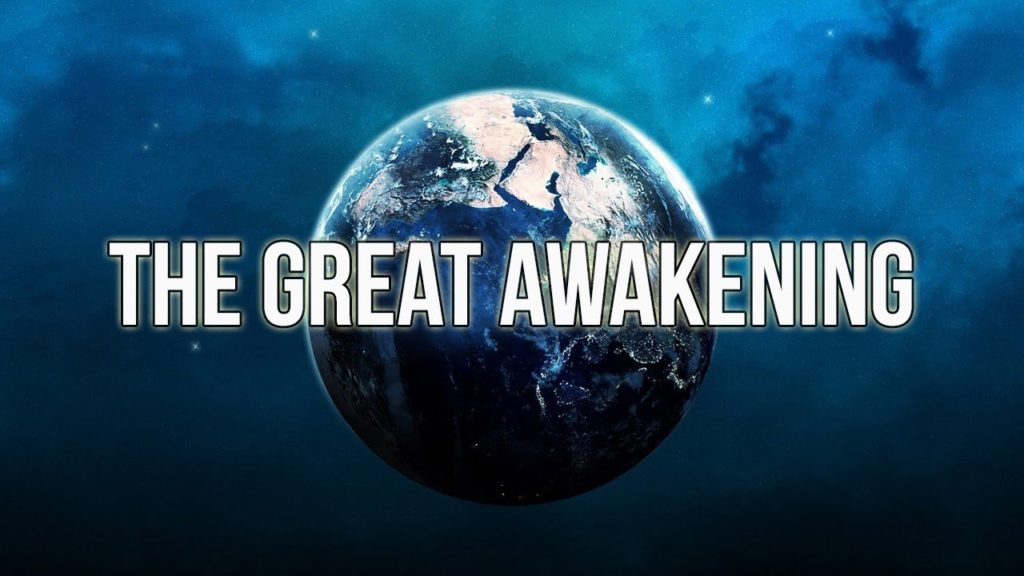 I’m spiritually stuck. We are stuck people. We get distracted, pulled down, undone. God feels distant and irrelevant. Dane Ortlund says, “You are not abnormal. So relax. We all go through this from time to time.”
I’m spiritually stuck. We are stuck people. We get distracted, pulled down, undone. God feels distant and irrelevant. Dane Ortlund says, “You are not abnormal. So relax. We all go through this from time to time.”
Seasons of spiritual darkness are common — even when many pretend it’s an anomaly. Even when indifference pirates our most pious intentions, and we surrender ourselves to isolation in our lack of holy zeal, don’t be deceived: Gloom in the Christian’s heart is common. It does often look and feel different for different people:
- Your daily fear of future tragedy erodes your affection for God.
- Your experience in corporate worship is empty and distracted.
- You feel unimpressed, aloof to the things of God.
- Patterns of repentance crumble and fade.
- The preached word seems boring.
- Hymns prompt only an irregular cadence of exhausted sighs.
- Spiritual advice trips over its own triteness on its way to cynical ears.
- Christian blogs induce more guilt than help.
Day after day, sermon after sermon, small group after small group, we’re discouraged and frightened by a widening gap between the desired self and the real self. We feel the torque pulling between our desired relationship with God — the desired emotions, the desired disciplines, the desired relationships — and the real.
It feels like the solution should be simple — another round of repentance, a worship song, a Paul Tripp devotion. Something. Anything. But those things either don’t feel effective or mysteriously elude us.
Here are six places to start — intentions to experiment with — when you feel spiritually stuck and alone. “Intentions” are things that we easily lose. They are good, but they can be slippery. You should find yourself in one, or a few, of these intentions. They’re not all right for you. But you should discover which one might be most relevant to you now. Read through them, and search for words for your heart. Read them in sequence, and look for the helpful nutrients you need.
1. Be honest about your heart.
We read, “I waited patiently for the Lord; he inclined to me and heard my cry. He drew me up from the pit of destruction, out of the miry bog” (Psalm 40:1–2). Well, then. What a wonderful experience for David. #Blessed. But not all of us have yet been pulled from the bog.
Let’s be honest about what we feel toward God — our tangled thoughts, our slogging feet, our raw experiences, our dulling passions, our disappointed expectations. Anyone who gives you a single answer for all of humanity — to fix every single sorrow — is a fool. That’s what makes us wanderers. You can’t podcast away sin’s tedious yoke. What, then, does it look like for us to encounter Christ when we cannot yet praise God for pulling us out of our emotional marshland? It begins with honesty.
Ask yourself, “If I had absolutely nothing to lose, what would I say to God?” Or, even further, “If I had total domain over my personal spiritual life, what would I want it to look like?” More than that, “How do I feel about how that compares to my real spiritual walk?” Keep digging. Honesty is difficult, because sometimes it’s buried beneath our own spiritual pretensions. Find the honest in you — sift through your own heart like you’re sifting for gold.
2. Complain out loud to God.
Now, speak your honesty. We need the blessing of God’s fatherly ear toward us, inviting us to speak what we might not say out loud in church:
“I am weary with my moaning; every night I flood my bed with tears; I drench my couch with weeping.” (Psalm 6:6)
“I am weary with my crying out; my throat is parched. My eyes grow dim with waiting for my God.” (Psalm 69:3)
“I am weary, O God; I am weary, O God, and worn out.” (Proverbs 30:1)
Maybe perseverance in praying out loud — or starting to pray embarrassing feelings out loud to learn that God has no pretense — will be your means of blessing and freedom.
If you’re angry at God, say it with David. “Evening and morning and at noon I utter my complaint and moan, and he hears my voice.” David has replaced his meal-time prayers with complaining to God, and he doesn’t apologize for it. He says, “I’m talking to you three times a day, and I know you can hear me.”
3. Complain out loud to others.
If you want to double down with a high-risk spiritual investment portfolio, say these honest things out loud with other people. “Let the assembly of the peoples be gathered about you; over it return on high” (Psalm 7:7). Revival may be found in community. This isn’t meant to justify whining. Don’t whine. Complain until you expect, again. Complain until you find yourself bringing your spiritual dryness to God: “Over it return on high.” “Return.”
Complain to others, “Is my complaint against man? Why should I not be impatient? Look at me and be appalled, and lay your hand over your mouth” (Job 21:4–5). Job is saying, “I don’t care if this scandalizes your pristine, glass-encased view of prayer. He can’t use traffic as an excuse for his absence — he is all places at all times with all knowledge and all power — so I’m asking him to show up right now and get me out of this rut.” He just might.
4. Get out of your own head.
More knowledge may not be the solution to your problem. In an age of career-design, lifestyle-engineering, and life-hacking, that may seem ridiculous to you. But if you’ve tried everything, consider this thought: It’s possible you may not even need to repent of anything in order to “fix” your feelings. You might just need to get out of your head.
To a certain extent, your current spiritual emotions may be the circumstances that you’ve been given — the cards you’ve been dealt — and faithfulness does not look like scrubbing your soul of any indicators of unrest or grief, but of letting those indicators help to lead you into being more comfortable in your own skin, and as an extension, a deeper, more real relationship with the God who made you and gave you this story.
The uncontrollable spinning of thinking about God and the Bible can distance you from yourself, from people, and from God (attention: seminary students). If you don’t know that you can think too much about theology, you’ll just feel guilty for not being able to think your way out of a problem that is caused by overthinking to begin with.
Turn off your phone, go to the nearest open field, kick off your shoes, and lay in the grass. Do it right now. “Your righteousness is like the mountains” (Psalm 36:6). I have an inkling that this prayer has roots in a completely non-intellectual, nature-enjoying, social-media-absent experience in David’s life — looking at mountains, perhaps. Lay back in the grass and, gazing at the sky, allow your mind to wander there. “Bow your heavens, O Lord, and come down” (Psalm 144:5). And maybe you will find enough rest in that moment to sink down a few verses: “Stretch out your hand from on high; rescue me and deliver me from many waters” (Psalm 144:7). And maybe he will.
Let the entire industry of trivializing Jesus Christ through list-formulations dissolve out of your mind. Let the expectations of virtual communities be silenced. The distant vision of an infinite, glorious, compassionate, and satisfying God — increasingly a pipedream — it is real, and it is available to you today.
5. Get back in your head.
God also heals us through remembering. The entire book of Deuteronomy is about how Israel needs to remember God if they are going to find satisfaction for their souls and be fruitful with what God has given them. Remind yourself that nothing you’re experiencing is surprising or disappointing to God. The best, most faithful, happiest Christians in the universe have experienced spiritual darkness, and it doesn’t necessarily say anything about you.
God intimately cares about and knows:
- your every deliberate sin (Psalm 32:5)
- your every stubborn turning away (Psalm 139:2–4)
- your every desperate moment (1 Samuel 2:8)
- your every unmet hope (Proverbs 13:12; Psalm 34:18)
- your every cynical thought toward him (Genesis 6:5)
- your every crippling fear (Psalm 56:3; Psalm 77:16)
- your every lonely moment (Psalm 25:16; Psalm 102:7)
- your every overwhelming crisis (Isaiah 43:2)
- your every despair (Psalm 69:14–15)
- your every feeling of rejection (Psalm 147:3)
He knows everything about us. And he still sustained us today. He still gave us breath. He still woke us up. He still gave us what we need to live a full, 24-hour day. For some purpose, in his knowledge that is greater than ours, and in his care and provision and compassion that is more imaginative and sufficient than we could conceive, he has not allowed the atoms that hold us together to dissolve. That would be terrifying, knowing we live our lives teetering on the cliff of non-existence at the whim of a more powerful, all-righteous being, except that he tells us why he gives us another day, another breath, another reason for hope:
He loves us.
6. Practice receiving the love of God.
This is the most important thing you can do. Without this, all the other spiritual exercises you could possibly integrate into your personal life will quickly disintegrate. So let’s have at it.
God loves you so much. He loves you. He loves you. He is with you in the dim and the dark. He sings songs about you.
The LORD your God is in your midst, a mighty one who will save; he will rejoice over you with gladness; he will quiet you by his love; he will exult over you with loud singing. (Zephaniah 3:17)
It’s so easy to trust our reflex — that God is big, and therefore removed, distant, and has better things to do than care about our daily anxieties. Sure, he “cares” about us. But he cares about everyone. So, his generic providence can feel like a cheap consolation prize to forgetful people — a happy meal toy that punishes us when we do bad and pats us on the head when we do right.
The beauty of God’s love is that it survives spiritual dry times. Don’t let the lie sink into your mind that spiritual dryness indicates that God has gotten over you, or that he’s tired of working with you. Far from it.
Think of a moment in your life when you were brought to tears — when you were overwhelmed by your body’s desire to cry, because you felt so deeply. God feels that about you. The Bible tells us that “In the days of his flesh, Jesus offered up prayers and supplications, with loud cries and tears, to him who was able to save him from death, and he was heard because of his reverence” (Hebrews 5:7). Jesus, who is God’s perfect expression of his attitude toward you, cries over you. He doesn’t just love in action. He loves in emotion. God is upset by you — in a good way. It can’t be overstated: He loves you.
We live in a frightening world. Life threatens us with loss, with decay, with slow suffering, with aging, with slipping into a place we don’t want to be. God is beyond and above romantic love; he doesn’t have it — romantic love merely depicts the commitment and intensity of God’s love. “God is in love with you” isn’t saying too much, but not enough — God is in love with you. God is utterly devoted to you. He’s fascinated with you like a father with his daughter. He’s brought to tears by his love for you. If something tangles you up and distracts you from that, cut it loose.
Start there, end there. You don’t need more good news than this, whether it’s the first day you belong to Christ or the fiftieth year you walk with him: “In this is love, not that we have loved God but that he loved us and sent his Son to be the propitiation for our sins” (1 John 4:10).
© Copyright 2016 Desiring God
 It’s one thing to trust God to provide for our present needs (Matthew 6:33). It’s another to presume upon Him by dictating (via a decision to incur debt) the terms of His future provision. By choosing to go into debt, we twist God’s arm to provide not only for our needs but also our wants.
It’s one thing to trust God to provide for our present needs (Matthew 6:33). It’s another to presume upon Him by dictating (via a decision to incur debt) the terms of His future provision. By choosing to go into debt, we twist God’s arm to provide not only for our needs but also our wants.

 I’m spiritually stuck. We are stuck people. We get distracted, pulled down, undone. God feels distant and irrelevant. Dane Ortlund says, “You are not abnormal. So relax. We all go through this from time to time.”
I’m spiritually stuck. We are stuck people. We get distracted, pulled down, undone. God feels distant and irrelevant. Dane Ortlund says, “You are not abnormal. So relax. We all go through this from time to time.”